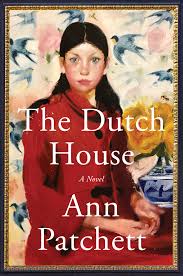Chapter 14
byChapter 14 explores Danny’s evolution from an inexperienced property owner into a successful real estate investor, providing a detailed account of his growth, challenges, and the interpersonal conflicts that arise along the way. After making a profitable sale on his first few properties, Danny takes a bold step by purchasing a mixed-use building on Broadway, eager to expand his investments. However, this decision quickly exposes him to the unpredictable nature of property management, forcing him to confront issues such as illegal garbage disposal, outdated infrastructure, and an erratic heating system that remains beyond his control. The complexities of running a building highlight the steep learning curve he must navigate, reinforcing the reality that real estate ownership extends far beyond financial transactions. To adapt, Danny hires a superintendent and establishes a property management company, recognizing that long-term success in the business requires direct engagement and strategic problem-solving.
The chapter also delves into the shifting dynamics within Danny’s personal life, particularly his marriage to Celeste and his unbreakable bond with his sister, Maeve. Celeste grows increasingly frustrated with Maeve’s constant presence in Danny’s affairs, perceiving her involvement as an overstep into their marital space. She resents the fact that Maeve remains a central figure in Danny’s decision-making process, especially in financial matters, where her input carries significant weight. To Celeste, this closeness feels intrusive, threatening the independence she desires in her own relationship with Danny. However, from Danny’s perspective, Maeve’s guidance is invaluable—her financial expertise and unwavering support have been constants throughout his life, making her an irreplaceable confidante. This clash of perspectives reveals deeper tensions, highlighting the ways in which personal relationships, particularly those rooted in family, can complicate marriage and individual aspirations.
Meanwhile, Maeve’s contentment with her position at Otterson’s contrasts sharply with Danny’s ambition and relentless pursuit of financial success. Despite his insistence that she pursue further education or higher professional goals, Maeve remains firm in her belief that stability and familiarity are more important than climbing the corporate ladder. She has no desire to chase the kind of achievements that drive Danny, and though he struggles to understand her reluctance, he ultimately respects her choice. Her unwillingness to change careers underscores her deep connection to the life she has built for herself, reinforcing the idea that fulfillment is subjective and personal. Maeve’s perspective challenges Danny to reconsider his own ambitions and question whether financial prosperity alone can provide the sense of belonging and satisfaction he seeks.
As the chapter progresses, the emotional weight of the past continues to cast a long shadow over Danny and Maeve’s lives. The Dutch House, which once represented a childhood of privilege and stability, remains a haunting presence, serving as both a cherished memory and a painful reminder of loss. Despite their material success, neither sibling has fully moved beyond the wounds inflicted by their forced exile from the home, illustrating how unresolved emotions can persist long after physical separation. Their attachment to the Dutch House is not just about the structure itself but about what it symbolized—security, family, and a sense of permanence that was abruptly taken from them. The emotional scars left by their stepmother Andrea’s actions still linger, shaping the way they interact with the world and reinforcing the unbreakable bond they share as siblings.
Through encounters with past figures, such as Fluffy and Celeste, Danny is forced to confront the ways in which the past continues to influence his present. The tension between nostalgia and forward momentum plays a central role in the chapter, raising the question of whether true closure is ever possible when the past remains so deeply ingrained in one’s identity. Danny reflects on how his career in real estate diverged from his original path in medicine, acknowledging that his decisions have been shaped not only by personal ambition but also by a deep-seated need to reclaim control over his life. His journey illustrates the complicated nature of success, revealing that financial achievement does not necessarily equate to emotional fulfillment.
Ultimately, Chapter 14 offers a poignant exploration of ambition, familial loyalty, and the long-lasting effects of childhood trauma. Danny and Maeve’s story underscores the complexity of human relationships, particularly when shaped by loss, nostalgia, and unresolved conflicts. Their unwavering connection to the Dutch House, despite years of distance, highlights the profound impact that certain places and experiences have on an individual’s sense of self. This chapter invites readers to consider the ways in which the past continues to shape the present, questioning whether it is ever truly possible to move forward without carrying the weight of what came before.


